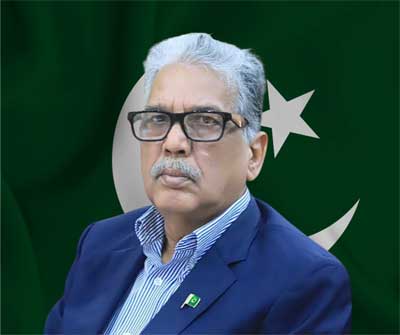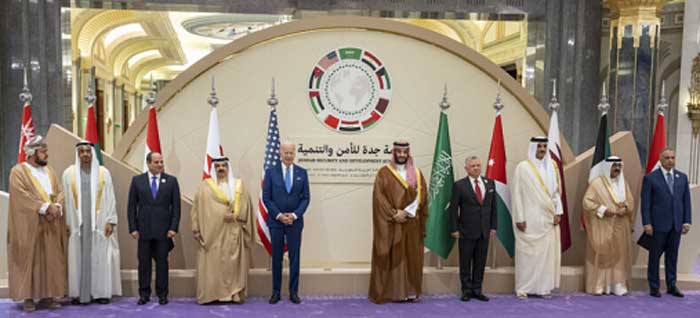

Saudi Arabia has emerged as a pivotal player on the global stage, leveraging its economic strength, diplomatic initiatives, and strategic reforms to enhance its influence. As a key member of the G20, the Kingdom plays a crucial role in global economic stability. The ambitious Vision 2030 plan is reshaping its foreign policy and diplomatic engagements, while sweeping economic reforms are transforming Saudi Arabia into an attractive business hub. These factors collectively position Saudi Arabia as a key driver of global economic and diplomatic progress.
Saudi Arabia’s Role in the G20: Economic Leadership & Global Partnerships
As the only Arab nation in the G20, Saudi Arabia holds a unique position in shaping international economic policies. The Kingdom’s economic influence is driven by its vast oil reserves, robust financial sector, and growing investments in non-oil industries. The Saudi economy is the largest in the Middle East, and its leadership in the G20 allows it to advocate for emerging markets and developing economies.
During its G20 presidency in 2020, Saudi Arabia played a pivotal role in global economic recovery amid the COVID-19 pandemic. The Kingdom spearheaded initiatives like the Debt Service Suspension Initiative (DSSI), providing financial relief to struggling economies. It also championed digital transformation, women’s empowerment, and sustainable development, reinforcing its commitment to global economic progress.
Saudi Arabia’s G20 participation has also strengthened its partnerships with major economies, facilitating increased trade and investment flows. By engaging in multilateral forums and economic summits, the Kingdom continues to shape policies that support economic resilience, climate action, and technological advancements.
The Impact of Vision 2030 on Saudi Arabia’s Foreign Policy & Diplomacy
Vision 2030, launched by Crown Prince Mohammed bin Salman, is a transformative blueprint aimed at diversifying Saudi Arabia’s economy and reducing its dependency on oil. However, beyond economic diversification, Vision 2030 has significantly influenced Saudi Arabia’s foreign policy and diplomatic strategies.
One of the key shifts in Saudi diplomacy is its increased emphasis on economic partnerships. The Kingdom has expanded its ties with global superpowers such as China, the United States, and Russia, as well as emerging economies in Asia, Africa, and Latin America. Economic diplomacy has become a cornerstone of its foreign policy, fostering mutually beneficial collaborations in energy, infrastructure, and technology.
Additionally, Vision 2030 has led to a stronger regional engagement strategy. Saudi Arabia has played an active role in the Gulf Cooperation Council (GCC), the Arab League, and the Organization of Islamic Cooperation (OIC). The Kingdom has mediated conflicts, supported stability in neighboring countries, and strengthened security alliances. Its diplomatic outreach has extended to initiatives like the Saudi Green Initiative and Middle East Green Initiative, promoting sustainability and climate action on a global scale.
Saudi Arabia’s soft power has also gained prominence through cultural diplomacy, sports investments, and tourism initiatives. Hosting major international events such as the Riyadh Season, Formula 1 races, and the 2034 FIFA World Cup bid has enhanced its global image and diplomatic standing. These efforts align with Vision 2030’s goal of positioning Saudi Arabia as a modern, progressive nation open to international engagement.
Saudi Arabia as a Business Hub: Foreign Investments & Economic Reforms
Saudi Arabia’s ambitious economic reforms under Vision 2030 have transformed it into a competitive global business destination. The Kingdom has launched sweeping regulatory changes, infrastructure projects, and investment incentives to attract foreign direct investment (FDI).
One of the most significant reforms is the introduction of the Public Investment Fund (PIF), a sovereign wealth fund that manages multi-billion-dollar investments in key sectors such as technology, entertainment, and tourism. The PIF has played a crucial role in attracting multinational corporations to establish regional headquarters in Riyadh.
Additionally, Saudi Arabia has implemented investor-friendly policies, including tax incentives, relaxed foreign ownership restrictions, and streamlined business licensing procedures. The introduction of special economic zones (SEZs) and mega projects such as NEOM, the Red Sea Project, and Qiddiya has further enhanced its appeal to international investors.
The Kingdom’s growing infrastructure development, including major airport expansions, high-speed rail networks, and smart city projects, has also strengthened its position as a global logistics and business hub. The push for digital transformation, supported by initiatives like the Saudi Data and AI Authority (SDAIA) and the National Industrial Development and Logistics Program (NIDLP), is fostering innovation and entrepreneurship.
Saudi Arabia’s commitment to renewable energy and sustainability is another key factor in attracting global investment. With ambitious plans to generate 50% of its energy from renewables by 2030, the Kingdom has launched massive projects in solar and wind energy. These initiatives align with global sustainability goals and appeal to environmentally conscious investors.
Saudi Arabia’s role in the G20, its evolving foreign policy under Vision 2030, and its rapid economic transformation have established it as a global powerhouse. Through strategic economic leadership, diplomatic engagement, and business-friendly reforms, the Kingdom is strengthening its global influence. As Saudi Arabia continues to diversify its economy, expand its international partnerships, and embrace innovation, it is set to remain a key player in shaping the future of global trade, diplomacy, and investment.




